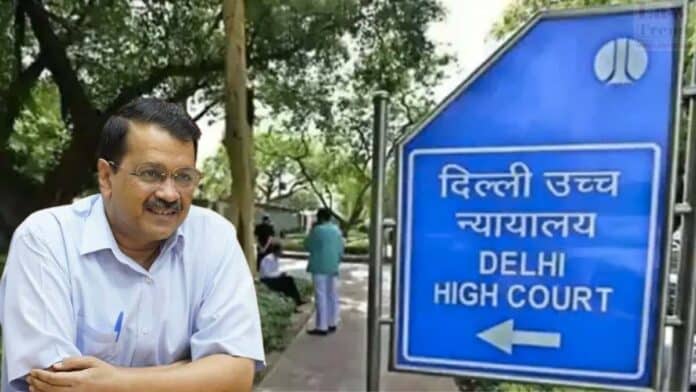New Delhi: In a significant development that has captured the nation’s attention, Delhi Chief Minister Arvind Kejriwal’s legal plea against his arrest by the Enforcement Directorate (ED) and subsequent judicial remand is scheduled for a crucial hearing. The hearing is set to take place on Wednesday at 10:30 AM before Justice Swarana Kanta Sharma’s bench, marking a pivotal moment in this high-profile case.
The backdrop of this legal challenge is rooted in a series of investigations led by the ED, which culminated in the arrest of Mr. Kejriwal. The arrest has sparked a wide array of responses, ranging from public outcry to political debates, highlighting the intricate relationship between governance, law enforcement, and judicial oversight in India.
At the heart of the dispute are allegations related to financial irregularities, which the ED claims warrant the Chief Minister’s arrest and remand for further interrogation. Mr. Kejriwal’s legal team, however, argues that the arrest is not only unwarranted but also politically motivated, aiming to tarnish the reputation of the Chief Minister and his party.
The legal plea filed by Mr. Kejriwal challenges the procedural and substantive aspects of the arrest, questioning the jurisdiction, the evidence basis, and the manner in which the entire operation was conducted. Legal experts suggest that the plea will likely delve into complex legal principles related to individual rights, due process, and the limits of law enforcement powers.
Justice Swarana Kanta Sharma’s bench is expected to examine a range of legal arguments, including the applicability of certain provisions of the Prevention of Money Laundering Act (PMLA) under which the ED has proceeded, and the constitutional safeguards available to Mr. Kejriwal.
Also Read
The outcome of this hearing could have far-reaching implications, not just for Mr. Kejriwal and the Delhi government, but also for the broader landscape of political accountability and law enforcement in India. It raises critical questions about the balance of power, the role of investigative agencies, and the protection of civil liberties in a democratic society.
As the nation awaits the court’s decision, the case underscores the ongoing challenges within India’s political and legal systems, highlighting the need for transparency, fairness, and justice in the pursuit of governance and accountability.
Stay tuned for further updates as this story develops.




